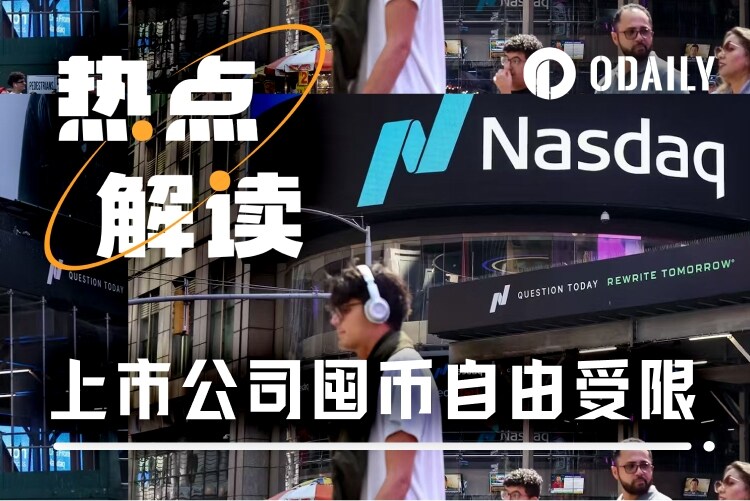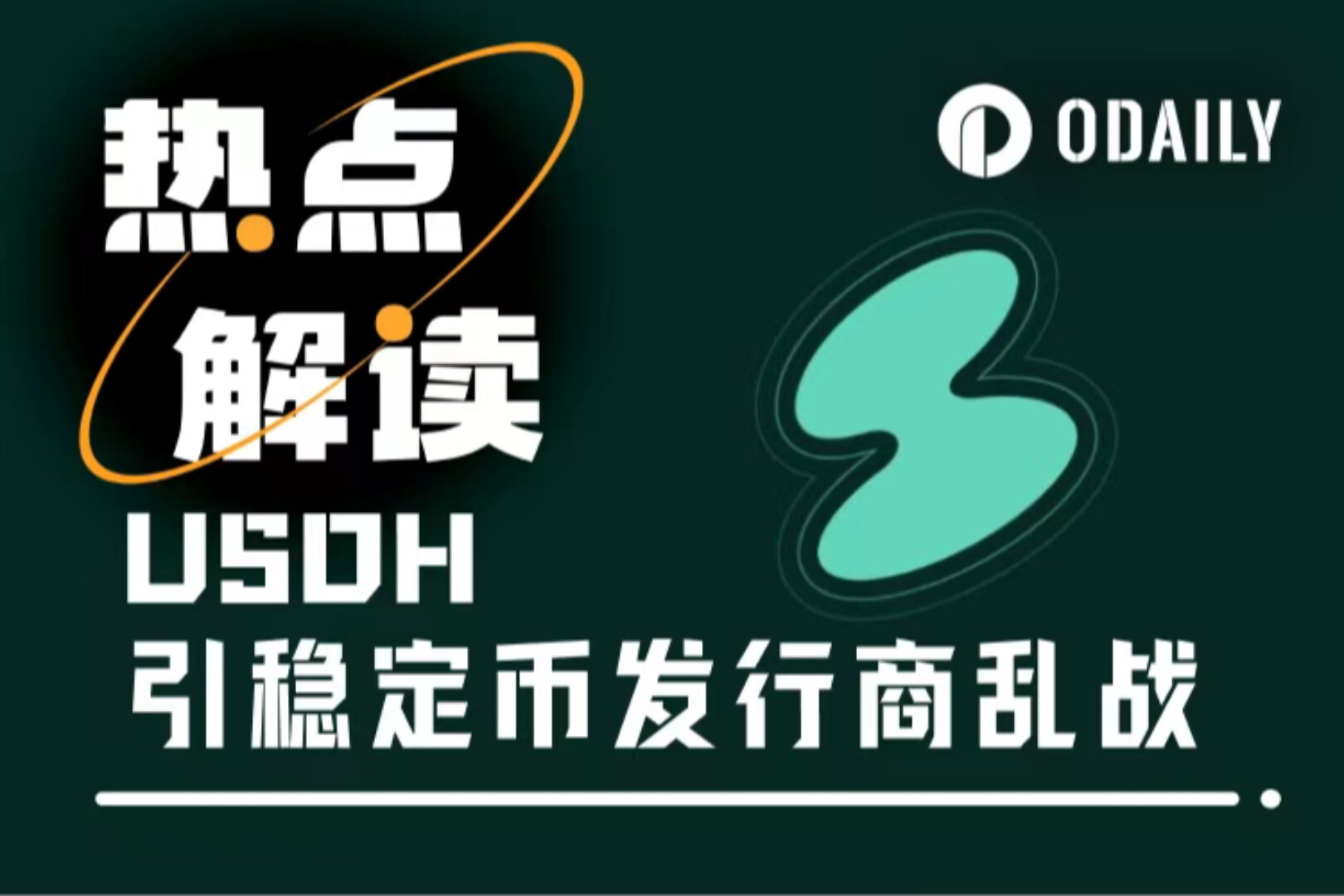Original | Odaily Planet Daily ( @OdailyChina )
By Wenser ( @wenser 2010 )

After nearly three months of rapid growth, US listed companies that hold cryptocurrency are facing a new round of regulatory pressure:
Nasdaq is strengthening its review of companies holding cryptocurrency; the U.S. SEC announced the establishment of a cross-border task force on September 5 to strengthen the identification and crackdown on cross-border fraud that harms American investors; the chairman of the Financial Action Task Force (FATF) also said that since criminals are increasingly using cryptocurrencies to transfer funds across borders, countries must disclose the owners of shell companies more transparently.
There are signs that US regulators are increasing their enforcement efforts against publicly traded companies holding large amounts of cryptocurrency and high-risk businesses suspected of money laundering. This article from Odaily Planet Daily summarizes this information and analyzes the potential impact of this trend on the crypto market.
Nasdaq tightens the window for listed companies to store coin, but the top two ETH reserve companies claim to be unaffected.
According to The Information, people familiar with the matter said that Nasdaq is strengthening its scrutiny of listed companies that attempt to boost their stock prices by raising funds to purchase and hoard cryptocurrencies. This move may affect the frenzy in the crypto market. As a major battleground for the US crypto stock market, Nasdaq requires some companies to obtain shareholder approval before issuing new shares to purchase cryptocurrencies.
In response to this, Bitmine and Sharplink, two major ETH reserve companies, gave different responses, but their common attitude reflected the same message: the company's current coin hoarding strategy is not affected by Nasdaq's policy.
BitMine Technologies stated that it is listed on the NYSE American, a division of the New York Stock Exchange (NYSE American), rather than the Nasdaq exchange, and can issue shares through its existing shelf registration, without the need for shareholder approval. The existing ATM financing program remains a registered, legally publicly traded transaction and does not require shareholder approval to proceed. Therefore, it is not subject to Nasdaq's requirement that publicly traded companies obtain shareholder approval before issuing new shares to purchase cryptocurrencies.
SharpLink officially responded that it fully complies with Nasdaq regulations and does not require shareholder approval if it implements an ATM financing plan to acquire ETH. SharpLink emphasized that its strategy remains unchanged and that it will only raise capital when it can create value for shareholders. SharpLink also pledged to strictly adhere to compliance and transparency requirements, ensuring that all transactions comply with Nasdaq regulations and industry practices.
In short, Bitmine avoids current regulatory requirements by not listing on Nasdaq; SharpLink emphasizes that ATM financing is a public sale of stock at market prices, which only requires board approval and does not require shareholder approval. The affected companies are subsequent DAT (Digital Asset Treasury) listed companies.
In addition to stock exchanges, the U.S. SEC is not to be outdone. While launching a joint statement with the U.S. CFTC to encourage innovation and development in the cryptocurrency industry, it has also targeted cross-border fraud related to stocks and securities.
The U.S. SEC has established a cross-border task force to combat cross-border fraud, including market manipulation.
On September 5, the U.S. SEC announced the establishment of a cross-border task force to strengthen law enforcement efforts in identifying and combating cross-border fraud that harms U.S. investors.
The task force will reportedly prioritize investigations into suspected violations of U.S. securities laws by foreign companies, including potential market manipulation practices such as pump-and-dump and ramp-and-dump. It will also focus on the gatekeepers who facilitate these companies' access to U.S. capital markets, particularly auditors and underwriters. The task force will also examine potential securities violations by companies from certain jurisdictions, including China, as these countries pose unique risks to investors due to government control and other factors.
U.S. SEC Chairman Paul S. Atkins said that global companies are welcome to enter the U.S. capital markets, but will not tolerate any company, intermediary, gatekeeper or trader using international borders to evade U.S. investor protection.
Margaret A. Ryan, director of the Cross-Border Task Force's enforcement division, said the Cross-Border Task Force will integrate resources and expertise to combat international market manipulation and fraud and effectively protect American investors.
It can be seen that although there is no direct connection with listed companies holding cryptocurrencies, the purpose of cracking down on market manipulation and other behaviors is to confine capital liquidity to the U.S. stock market, rather than using cryptocurrencies to achieve capital outflow.
Combined with the previous statement by the Chairman of the Financial Action Task Force (FATF) that "criminals are increasingly using cryptocurrencies to transfer funds across borders", countries must disclose information about the owners of shell companies more transparently . All signs indicate that regulators are carefully scrutinizing cryptocurrency reserve companies that have gone public through backdoor listings, and are preparing for subsequent strong supervision.
The impact of restrictions on the freedom of listed companies to buy cryptocurrencies: short-term negative, long-term positive
Based on the existing information, the cryptocurrency hoarding behavior of listed companies may be subject to greater scrutiny by U.S. regulators. On the one hand, this move is to avoid disrupting the normal trading order of the stock market and protect ordinary investors; on the other hand, this move may impose certain restrictions on money laundering, price manipulation, and stock fraud.
From the perspective of the crypto market, this move may affect the frequency and scale of listed companies' purchase and hoarding of coins in the short term. Although it will have little impact on giant companies that already have certain first-mover advantages, for fundraising targets, their market-to-dream rate and regulatory risks will undoubtedly be affected.
However, in the long term, regulatory restrictions and oversight on cryptocurrency hoarding by listed companies will facilitate the continued purchase of mainstream cryptocurrencies, including BTC, ETH, and SOL. On the one hand, regulators will effectively prevent backdoor listings without sufficient financial resources from inflating their stock prices through short-term speculation. On the other hand, listed companies that meet regulatory requirements and possess sufficient financial strength will be able to continue purchasing relevant cryptocurrencies at a more market-aligned frequency and hold these tokens for a period of time. This will objectively reduce the circulating supply of some cryptocurrencies, thereby boosting the growth of the cryptocurrency market capitalization and price increases.
The latest news shows that SOL Strategies has been approved to be listed on the Nasdaq in the United States on September 9 , with the stock code STKE. At a time when the regulatory window is tightening, this stock may become a "touchstone" for the market acceptance and recognition of "crypto concept stocks" in the near future.
- 核心观点:美国监管收紧上市公司加密货币持仓。
- 关键要素:
- 纳斯达克加强囤币公司审查。
- SEC成立跨境工作组反欺诈。
- FATF呼吁加强空壳公司披露。
- 市场影响:短期利空买币规模,长期利好市场规范。
- 时效性标注:中期影响。



